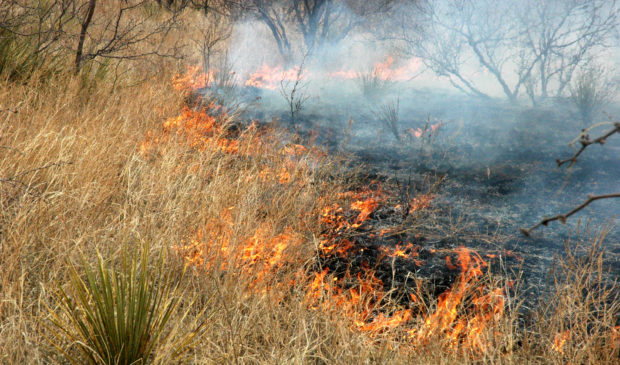Newsletter Signup
The Austin Monitor thanks its sponsors. Become one.
Most Popular Stories
- Council members celebrate unanimous defeat of bill that proposed putting Austin under state control
- A once-banned type of building is back in favor – and the Planning Commission approves
- Eviction crisis spreads as affordability pressures worsen
- Austin churches answer prayers for affordable housing – by building it themselves
- Audit shows former Austin Water employee directed search of boss’ inbox
-
Discover News By District

Zoning and Platting Commission weighs in on proposed fire code
Tuesday, August 20, 2019 by Jessi Devenyns
As Austin weathers the dog days of summer, wildfire risk is once again a hot topic in the city.
A new report this week by the Office of the City Auditor said that the city could be doing a better job of fireproofing areas outside of the urban core, an area that’s roughly two-thirds of the city.
The Zoning and Platting Commission likewise feels that more needs to be done to address fire risk in the outer rings of the city. At ZAP’s Aug. 6 meeting, Commissioner Jim Duncan said that the fire risk in the outskirts of Austin is something that has been ignored for too long.
“If you look at District 10, it’s almost all extreme hazard,” he said.
The commission discussed the necessity of a fire code that requires the use of fire-resistant materials in construction and actively reduces threats in areas prone to burning.
This is not the first time the city has considered these code changes: Council passed a resolution directing former City Manager Marc Ott to evaluate the Wildland-Urban Interface Code in May 2016 for potential adoption, but there were never any steps taken to enact the changes.
The new Wildland-Urban Interface Code has been in the works since then and the Austin Fire Department is expected to present a finalized draft to Council by December.
Duncan, who was previously the director of land services in the Development Services Department, told representatives from AFD that the need for wildfire mitigation is nothing new. He presented the case of a wildfire off Highway 360 across from the Arboretum in the 1980s. As a result of the steep grades and materials used in construction, a fire at an apartment complex called Aspen Hills destroyed 36 apartments and left 100 people homeless. “The damage was $1 million and that was 35 years ago,” he said.
To prevent such a catastrophe from occurring again, Duncan told AFD officials that when they present the revised code changes to Council this time around, “I hope you’re listened to.”
Commissioner Ana Aguirre noted that West Austin is not the only portion of the city at risk. “It looks like we still have a lot to do in East Austin,” she said.
East Austin has fewer trees and is therefore more susceptible to grass fires, which require different techniques to combat.
While the Wildland-Urban Interface Code remains in draft, Commissioner Ann Denkler encouraged AFD to continue to educate communities around the city through its Firewise program. She said in her district, District 7, “I’m really grateful that y’all are doing that because I’m seeing it slowly spread out into the neighborhood.”
The draft of the new fire code will go to Council for a public hearing and possible action in October. If approved, the implementation is expected to continue through March 2020.
Photo by AgriLife Today made available through a Creative Commons license.
The Austin Monitor’s work is made possible by donations from the community. Though our reporting covers donors from time to time, we are careful to keep business and editorial efforts separate while maintaining transparency. A complete list of donors is available here, and our code of ethics is explained here.
You're a community leader
And we’re honored you look to us for serious, in-depth news. You know a strong community needs local and dedicated watchdog reporting. We’re here for you and that won’t change. Now will you take the powerful next step and support our nonprofit news organization?






